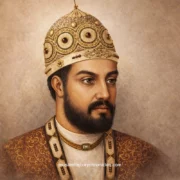Neelesh Chatterjee is a young historian. He has authored the…
In 1299, the Mongol Khan of Chagatai Ulus, Duwa, despatched his favourite son, Qutlugh Qocha, to India with a huge army of 200,000 soldiers. This time around, the Mongols made straight for Delhi without molesting any territory on the way. The intention was clear: the complete liquidation of the Delhi Sultanate.
The invasion created a great consternation — all the people from the surrounding towns and villages rushed into Delhi, and the capital became so crowded that no room was left in the lanes, markets and masjids.
A section of Delhi’s elite felt that a showdown with the formidable invading army would be suicidal. Led by the outspoken Kotwal, they pleaded with the Sultan to somehow make peace with the Mongols.
How did Alauddin Khilji react?
Sultan Alauddin Khilji, however, was made of sterner stuff. He brushed aside the timorous suggestions and thundered before his men: “It does not behove me to avoid fighting the Mongols under the cover of tricks and strategies. If I shy away from the war as you suggest, then the people of our times and those born after us will ridicule me and construe it as my cowardice. If I should do as you suggest, then how would I show my face to anyone? How would I go to my harem and where will I stand in the estimation of the people of my kingdom? Come what may, tomorrow I will give battle to Qutlugh Qocha and his army.”
As it turned out, the Mongol forces were no match to Alauddin’s. Only one contingent of the Delhi army gave battle to the hordes, and that proved enough: Qutlugh Qocha got mortally wounded, and his men simply melted away.
In his final moments, Qutlugh Qocha confessed that by taking on Alauddin Khilji he had bitten off more than he could chew. “No one can remember such an army and such a king as Alauddin Khilji in Hindustan.”
After their leader’s death, the Mongols were hard-pressed to return home. A Chishti mystic, returning from Chisht (in Afghanistan) found out that Qutlugh Qocha’s men, who had only a little while ago sworn to annihilate the Delhi Sultanate, were now keeping their body and soul together by stealing food and clothes from wayfarers.
References: Tarikh-i Firozshahi, by Ziauddin Barani; Futuh us Salatin, by Abdul Malik Isami; and Siyar ul Auliya, by Amir Khwrurd
Last updated on May 3rd, 2023 at 08:44 pm
Support us
Support Islamic Chronicles on Patreon and help us continue creating ad-free, high-quality content on the rich and diverse history of Islam and Muslims. Your support keeps our platform independent, educational, and accessible to all.
Become A Patron NowNeelesh Chatterjee is a young historian. He has authored the book "The Second Alexander: An Account of the Most Successful and Least Understood Sultan of Delhi".


